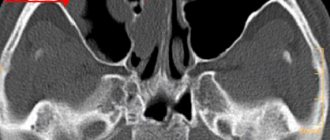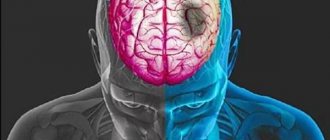Exhausting stomach pains, tired of digestive problems? Has unsuccessfully visiting doctors (therapists, gastroenterologists, allergists and other physical specialists) become a way of life? This means you should look elsewhere for a way out of your vicious circle!
In this case, you should consult a psychotherapist!
Such conditions are often a symptom of biological (endogenous) depression. They arise due to a lack of, for example, serotonin, norepinephrine, dopamine. In this case, depression itself hides behind the mask of torment associated with the stomach. And she succeeds easily. It seems completely natural, in the presence of such torment, to think a lot about them, to lose interest in life, to feel weak and overwhelmed, to be afraid that a terrible but not yet diagnosed illness is hiding inside, which “it’s better not to think about, so as not to attract it to yourself.” ", have trouble sleeping.
If you observe the following symptoms for several months, then your specialist in this case is a psychotherapist
- Worries include abdominal pain, nausea, a feeling of bloating or fullness with gases, an unpleasant taste in the mouth or a coated tongue, vomiting or regurgitation of food, complaints of frequent bowel movements (peristalsis) or the passage of gas.
- The symptoms present cannot be explained by any physical disorder. The identified changes cannot explain the severity, breadth, variability and persistence of physical complaints and the accompanying decrease in social activity.
- Preoccupation with these symptoms causes constant anxiety and forces one to seek repeated consultations (three or more) or various studies from specialists. In the absence of medical care for financial or physical reasons, there may be a tendency to constantly self-medicate or turn to “healers.”
- It is difficult to accept medical assurances that there is no adequate physical cause for the presenting complaints. If calm occurs for a short time, immediately after the examinations, this does not exclude the diagnosis of depression.
- At least 4 of the following symptoms of depression must accompany existing gastrointestinal problems (the more symptoms, the more severe the depression):
- Depressive mood accompanies you almost every day and has been occupying a significant part of the day for at least 2 weeks
- Decreased interest or decreased pleasure in activities that were previously enjoyable
- Waking up in the morning several hours before usual time or any other type of sleep disturbance
- Depression is worse in the morning
- Decreased ability to think or concentrate, indecisiveness
- Decreased confidence and self-esteem
- Self-judgment or excessive and inappropriate feelings of guilt
- Other people notice your depressed or agitated state
- Decreased energy and increased fatigue
- Noticeable change in appetite (increase or decrease) with a corresponding change in body weight
- A noticeable decrease in libido, less often - an increase in libido
- Recurrent thoughts about not wanting to live and about the meaninglessness of life
- In the past, for at least two years, there were complaints of various physical ailments, which also could not be explained by the identified physical disorders, but clearly indicated the presence of dysfunction of the autonomic nervous system, and therefore a diagnosis of “VSD” appeared, and possibly "Panic attacks".
When a person encounters the above complaints, he is often left with a diagnosis of “Irritable Bowel Syndrome”, but without proper medical care. Unfortunately, if a competent somatic specialist gives a recommendation to see a psychotherapist, then due to the prevailing lack of education in this matter, such a referral seems offensive and unjustified.
What else is dangerous about severe stress?
It is worth knowing that it is considered one of the triggering factors for the development of Irritable Bowel Syndrome2.
Irritable bowel syndrome (IBS) is one of the most common intestinal diseases3, the main manifestations of which5 are:
- pain and cramping in the abdomen
- bowel dysfunction (diarrhea and/or constipation);
- bloating, flatulence.
IBS refers to functional disorders of the intestine. What does it mean? In a healthy state, the intestines (or, more precisely, their walls) contract and ensure the passage of food. With IBS, the rhythm of contractions of the intestinal walls is disrupted, that is, its motor function is impaired.
Signs of Irritable Bowel Syndrome
Impaired motility (motor activity of the intestines):
Constipation occurs when motor skills are slow. The intestinal walls become less active and cannot provide the necessary movement of intestinal contents. Constipation is often accompanied by increased gas formation. Due to retention of contents in the intestines, fermentation processes intensify, gases accumulate - flatulence occurs.
Diarrhea occurs when intestinal motility increases. The intestinal walls begin to contract intensely, causing the intestinal contents to move along too quickly.
Spasm of intestinal smooth muscles leads to a feeling of abdominal pain and can also provoke the development of constipation.
Digestive disorders (nutrient absorption).
This or that disruption of the intestines affects the absorption of nutrients that we get from food. With constipation, bowel cleansing is delayed. This leads to the fact that harmful substances formed during digestion remain in the intestines longer than necessary and begin to be absorbed into the blood, causing intoxication. With diarrhea, on the contrary, the food in the intestines does not have time to be fully digested, and liquid and nutrients substances do not have time to enter the body.
How to soothe irritable bowel?
In order to restore intestinal function, it is necessary to stabilize the psycho-emotional state and learn to manage stress5.
Simple habits will help you maintain emotional balance, avoid the negative effects of stress and restore strength faster6:
- The right balance between work and rest
- Regular meals in small portions several times a day
- Proper breathing and aromatherapy
- Sports activities, walking outdoors
- Periodic change of environment
- Creative hobbies
In case of chronic stress and the impossibility of following the above recommendations, sedatives and consultations with a psychologist or psychotherapist may be required. Often, various psychotherapeutic interventions are used as treatment methods for Irritable Bowel Syndrome. When used skillfully, these methods help reduce anxiety and improve mood, which has a positive effect on health.
Emotional recovery can take a long time, and the unpleasant symptoms of IBS can continue to disrupt the usual rhythm of life. This is why treating the symptoms of Irritable Bowel Syndrome is equally important.
Duspatalin® 135 mg is indicated specifically for the treatment of pain, cramping and intestinal discomfort associated with Irritable Bowel Syndrome4.
“Stomach problems can happen even due to stress”: an interview with a gastroenterologist
Diseases of the gastrointestinal tract are among the most common compared to pathologies of other organs. According to Rospotrebnadzor, in Russia, more than 50–60% of people suffer from digestive system disorders among the adult population alone, and in large cities this figure reaches 95%. What are the symptoms of such diseases, how often do you need to be examined, what treatment methods exist today and how to prevent the disease.
Marina Smirnova, a gastroenterologist and head of the clinic at the Russian-Finnish Medical Center Terve, answered these questions.
How often are gastrointestinal problems treated?
The gastrointestinal tract (GIT) or digestive system is one of the largest systems in our body, starting in the mouth and ending in the rectum. Here everything we eat is processed, digested, absorbed and excreted, and since it is not always possible to eat correctly, everyone has experienced some unpleasant symptoms (heartburn, pain), and diseases of the gastrointestinal tract are the most common throughout the world.
Other organs and systems depend on the functioning of the gastrointestinal tract, including the immune system, since some of the cells of the immune system are located in the intestines, as well as the nervous and endocrine systems. Skin problems, and most of the oncological diseases also occur in the gastrointestinal tract. Therefore, there are always enough calls for gastrointestinal problems.
When should you go to a gastroenterologist?
You should think about visiting a doctor if some unpleasant symptom associated with digestion bothers you regularly, 1-2 times a week and for a long time, especially if you feel heaviness, pain, heartburn, bloating, problems with stool, etc. every day. etc. And definitely go to the doctor if you have night pain, weight loss, loss of appetite, vomiting, diarrhea, blood in the stool.
Now, amid the pandemic, most people who have suffered from coronavirus have taken a large number of medications, including antibacterial ones, have problems with the intestines and liver, and this requires mandatory consultation with a doctor, plus the number of so-called “anxious” patients has increased , in whom, due to constant stress and anxiety, all symptoms intensify, diseases become aggravated, which requires mandatory examination and treatment.
What methods of examining the gastrointestinal tract are there today?
A comprehensive examination plan includes instrumental methods - endoscopy (EGD), colonoscopy, ultrasound, duodenal intubation, and various laboratory tests - blood tests, stool tests and others. Moreover, a person who makes an appointment with a gastroenterologist is warned that it is best to come prepared, that is, on an empty stomach, then he can undergo almost all the necessary procedures in one day - ultrasound, FGS, take a blood test, if required according to indications. Based on the examination results, the patient is prescribed treatment and all necessary recommendations. Thus, he does not have to waste his time and visit several different medical institutions.
Endoscopic examinations (EGD, colonoscopy) in our clinic are carried out using modern equipment from Pentax Medical (Japan) in which video endoscopes are thin, small in diameter and a modern video system, this allows us to obtain HD+ quality (high definition) images, which improves the quality of diagnosis and allows us to detect lesions mucous membrane measuring from 1 mm.
During the examination, photographic recording of all inspected departments is required. In addition, the equipment in our center is equipped with the “i-scan” function, this is a digital image enhancement that improves visualization, enhances tissue and vascular structures, which can help in identifying and describing diseases.
In addition, if necessary, liquid chromoscopy is performed, that is, painting the mucous membranes directly with special dye solutions to improve the quality of examination in difficult cases.
Many people are afraid of endoscopic examinations, because... they are associated with a certain discomfort. In order to completely avoid unpleasant sensations during endoscopy and colonoscopy, drug sedation (medicated sleep) is used. It is better to sign up for the procedure in a dream in advance, but this issue can be resolved in the endoscopy room. For this purpose, an anesthesiologist is present in our medical center during endoscopy and colonoscopy procedures. If the patient understands that he is uncomfortable undergoing the examination without sedation, then the anesthesiologist provides assistance, plunging the patient into a safe and precisely calculated medicated sleep.
According to indications, endoscopy and colonoscopy can be performed at any age, but planned studies are carried out even without indications as cancer screening, depending on age. Thus, endoscopy (EGD) is recommended after 35-40 years, colonoscopy is mandatory after 40-45 years.
How often are gastrointestinal problems accompanied by concomitant diseases?
Often. The body is an integral system, and problems in one of the systems lead to problems in the other. For example, disturbances in the functioning of the thyroid gland can lead to problems with stool, unstable functioning of the nervous system can lead to the same unstable functioning of the intestines, and vice versa, and the presence of helminths (opisthorchids) living in the bile ducts disrupts not only the functioning of the liver and pancreas, but it also negatively affects the entire body: both the respiratory organs and the cardiovascular system can suffer, the skin, joints, etc. can be affected.
Therefore, it is important not to choose an examination yourself, but to start with a consultation with a doctor, who will carefully collect complaints and anamnesis and prescribe a comprehensive examination to exclude concomitant diseases. For this, specialists such as an endocrinologist, neurologist, proctologist, gynecologist, urologist and many others, and any person who applies can quickly receive advice from any specialist. This comprehensive approach allows you to establish an accurate diagnosis, prescribe the correct treatment and solve health problems.
How to prevent gastrointestinal diseases?
In the prevention of any diseases, and not only the gastrointestinal tract, nutrition plays a huge role - it should be regular, balanced, natural. At my appointment I talk about this in great detail, because a person is what he eats. The diet should contain a lot of foods containing fiber: greens, vegetables and fruits (of different colors), nuts, this is the so-called “rainbow on a plate”, and preferably at every meal.
It is better to season vegetables with healthy vegetable oil - olive, pumpkin, etc., now there is a very large selection of oils. Protein foods are also important: fish and seafood, poultry and eggs, various cereals (preferably whole grains). Also fermented milk products, but you need to carefully look at how the body perceives them, to see if there is any individual intolerance. It is better to stew or bake all foods rather than fry them.
It is very important to properly process and prepare river fish. We live in an endemic region in which most of the fish from the Yenisei, Angara, and Chulym basins are infected with helminths and insufficient freezing and heat treatment means a high risk of contracting opisthorchiasis and diphyllobatriosis. If parasitic infestation is suspected, stool and/or bile should be examined for the presence of parasites.
You can take a stool test and perform duodenal intubation in our medical center, and we can also carry out deworming (treatment) after certain preparation, under the supervision of a doctor, and the drug “Biltricid” (“Praziquantel”) is always available.
Prevention of any diseases includes an active lifestyle, a full 8-hour sleep, and preventive examinations: as I already said, EGDS after 35-40 years, colonoscopy after 45-50 years, annual monitoring of hemoglobin, ESR, glucose, cholesterol and others biochemical parameters.
Thus, a healthy lifestyle, including a balanced diet, physical activity, good sleep, a positive attitude, as well as attentive attention to any distress signals from the gastrointestinal tract and other organs (our body, as a rule, sends them on time) can protect against severe chronic diseases .
You definitely shouldn’t put up with them, and if they do arise, you need to consult a doctor in time and start proper treatment. The doors of our clinic are open to everyone, and our specialists will always help you deal with any health problems. Welcome to TERVE!
Duspatalin® 135 mg has a dual effect against the symptoms of IBS4:
- relieves spasms and pain in the abdomen, the drug begins to develop its effect within 15 minutes6;
- normalizes intestinal function, eliminating diarrhea, constipation, bloating and flatulence7.
The drug Duspatalin® 135 mg acts directly at the site of the problem - the intestines4, unlike systemic drugs, does not disrupt the functions of other organs and systems4.
Here you can familiarize yourself in detail with the drug Duspatalin® 135 mg and instructions for medical use.
Co-author of articles, editor - Shimbaretsky Georgy Alekseevich.
Treatment of stomach pain
To treat stomach pain, in most cases, taking medications is sufficient. Regardless of the diagnosis, the patient will have to follow a gentle diet. Eating is recommended every few hours in small portions. It is necessary to exclude all foods that can irritate the mucous membrane of the organ: fatty and sweet foods, alcohol and carbonated drinks, baked goods and sweets, sauces and spices.
Drug treatment may include several stages:
- antispasmodics and painkillers;
- sorbents;
- drugs to correct the acidity of gastric juice;
- antibiotics and others.
Surgical intervention is indicated for benign neoplasms that do not grow deep into the wall of the organ. Surgery may also be prescribed for gastric ulcers with the risk of perforation of its walls. Some structural anomalies of the organ also require surgical treatment if they interfere with the normal functioning of the digestive tract.
The Clinical Brain Institute specializes in the diagnosis and treatment of stomach pain. The clinic has the opportunity to undergo a full examination, consult with specialists of a wide and narrow profile, and receive an appointment for treatment. Therapy is carried out under the supervision of doctors until complete recovery.
Clinical Brain Institute Rating: 4/5 — 36 votes
Share article on social networks











